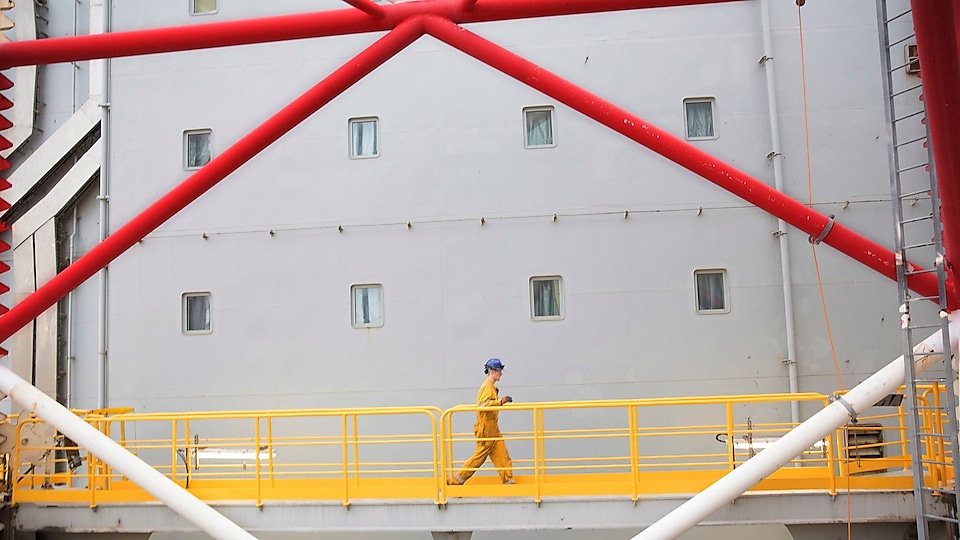Taskforce for Climate-Related Financial Disclosures (TCFD)
Updated on June 29, 2017
Royal Dutch Shell plc (Shell) signs letter of support and welcomes the final recommendations set out in a report published by the Task Force on Climate-Related Financial Disclosures (TCFD)
Shell welcomes and strongly supports the Paris Agreement, and supports the aspiration of transitioning towards a net-zero emissions world by 2050. We will work together with governments and stakeholders towards meeting this aspiration and we commit to report on steps taken. We see opportunity through the transition and aim to have the required flexibility to adapt and remain relevant and successful.
Investors are increasingly asking companies to disclose more information on the topic of climate change risk. In late 2015, Mark Carney, governor of the Bank of England and head of the Financial Stability Board, called for greater transparency on the risks climate change may impose on an organisation in financial terms, establishing the Task Force on Climate-related Financial Disclosures (TCFD). G20 countries supported this initiative to develop a framework with recommendations for disclosures which were released on June 29, 2017 ahead of presentation to the G20 in July 2017. These are for use across all business sectors.
“I agree that companies should be clear about how they plan to be resilient in the face of climate change and energy transition,” said Shell CEO Ben van Beurden. “I believe it is right that it should be transparent which companies are truly on firm foundations over the long-term. I not only applaud the task force for its work to achieve this aim and I have signed a letter confirming Shell’s support for the initiative.
“The details matter and I look forward to Shell working with the task force on those details. Specifically, how we present forward-looking information in an uncertain world, the disclosure of commercially sensitive data and the feasibility of providing the suggested detail to the standard required of financial filings. Ultimately, however, both Shell and the task force want these disclosures to be fit for purpose.”
Commenting on Shell’s support for the initiative, Governor of the Bank of England and FSB Chair, Mark Carney said: “The task force’s recommendations have been developed by the market for the market. They set out the disclosures that a wide range of users and preparers of corporate information have said are essential to understanding a company’s climate-related risks and opportunities. Widespread adoption will provide investors, banks and insurers with that information, helping minimise the risk that market adjustments to climate change will be incomplete, late and potentially destabilising. I am delighted that Shell is supporting the recommendations and that in so doing, it will bring its considerable expertise to work with the task force to build on, and refine their recommendations over time.”
The TCFD’s approach is not a set of specific questions that might be found in, for instance, the CDP (formerly Carbon Disclosure Project) or the Dow Jones Sustainability Index questionnaire. Instead, it proposes guidance to inform how companies assess and monitor potential climate risks and opportunities, and ensure they have appropriate governance in place to respond to identified risks. The framework defines four categories of information to be disclosed: governance, strategy, risk management, metrics and targets.
We believe that many of TCFD’s disclosure recommendations already align with several areas of Shell’s current reporting through our Annual Report/20F, the Shell Energy Transitions and Portfolio Resilience report and the Sustainability Report. To build understanding of the topic of climate change risk, we will continue to engage with the task force to suggest forms of disclosure which, where commercially possible for Shell, will be most relevant and useful to investors.
May 12, 2015, Harry Brekelmans, Projects & Technology Director at Shell, said: “We have strong experience with sustainability reporting through our annual Sustainability Report. We welcome and support efforts, such as those led by the Task Force on Climate-related Financial Disclosures (TCFD), to increase transparency and to promote investors’ understanding of companies’ strategies to respond to the risks and opportunities presented by climate change. We believe that many of TCFD’s disclosure recommendations already align with several areas of Shell’s current reporting through our Annual Report/20F, the Shell Energy Transitions and Portfolio Resilience report and the Sustainability Report. And we are engaging with the task force to suggest forms of disclosure which, where commercially possible, will be most relevant and useful to investors.”
More in Sustainability
Performance data
Our performance is tracked against a range of environmental and social indicators to work towards continuous improvement in these areas.
Greenhouse gas emissions
In 2019 we obtained limited assurance of our 2018 direct and energy indirect greenhouse gas emissions data from facilities we operate.

